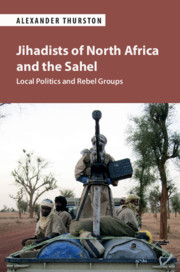5 - The Mali–Niger–Burkina Faso Borderlands
Incorporation and Accommodation at the Peripheries
Published online by Cambridge University Press: 15 October 2020
Summary
This chapter investigates the political career of a small Islamic State affiliate operating in this border zone. These jihadists have benefited not just from the stereotypical “porous border” but also from the way that complex conflicts in this region exacerbate animosity between ethnic groups and between civilian populations and national states. This animosity creates openings for jihadists to implicate themselves in local politics and for local communities to use jihadism as a weapon in local politics. The chapter argues, however, that the “Islamic State in the Greater Sahara (ISGS)” exemplifies the case of a coalition whose horizons are limited precisely because its religious messaging is highly underdeveloped. Even as ISGS finds some recruits and achieves some military and propaganda victories, such as ambushing a patrol of American and Nigerien soldiers in 2017, ISGS has struggled to build a serious political coalition and therefore may remain, ironically, a partial satellite of its ostensible rival al-Qaida in the Islamic Maghreb (AQIM).
Keywords
- Type
- Chapter
- Information
- Jihadists of North Africa and the SahelLocal Politics and Rebel Groups, pp. 192 - 232Publisher: Cambridge University PressPrint publication year: 2020

